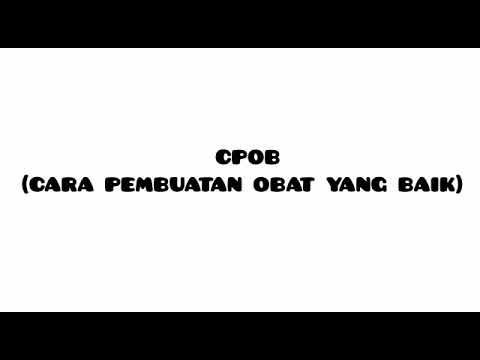🖥️ Computer System Validation Specialist CSV🖲️ Interview Questions and Answers
Summary
TLDRThis video provides an in-depth overview of Computer System Validation (CSV) in regulated industries, particularly in pharmaceuticals. It explains the importance of CSV for ensuring data integrity, compliance with regulations like 21 CFR Part 11, and maintaining product safety. Key concepts such as risk-based validation, the roles of CSV specialists, and the various stages of validation (IQ, OQ, PQ) are discussed. The video also covers vendor audits, continuous validation, and handling system changes or upgrades. Overall, it emphasizes the critical role of CSV in ensuring system reliability and regulatory compliance.
Takeaways
- 😀 CSV ensures that computer systems perform as intended and comply with regulatory requirements, critical for industries like pharmaceuticals where data integrity is essential.
- 😀 Regulatory bodies like the FDA (U.S.), EMA (Europe), and EDQM (Europe) govern CSV in the pharmaceutical industry, enforcing standards like 21 CFR Part 11 and Annex 11.
- 😀 21 CFR Part 11 outlines the requirements for electronic records and signatures in regulated industries, ensuring data integrity and compliance with electronic documentation.
- 😀 Verification checks whether the system is built according to specifications, while validation ensures the system meets the needs of the end user.
- 😀 Risk-based validation helps prioritize high-risk areas that could impact product quality and patient safety, ensuring efficient use of resources while maintaining compliance.
- 😀 Key phases of a typical CSV process include planning, specification, testing, and reporting, each ensuring system functionality and regulatory compliance.
- 😀 System qualification protocols (IQ, OQ, PQ) demonstrate that systems are installed, operate as intended, and perform consistently in real-world conditions, ensuring regulatory compliance.
- 😀 Continuous validation involves regular monitoring and periodic testing to ensure systems remain compliant throughout their lifecycle.
- 😀 A deviation during validation must be documented, assessed for impact, and addressed through corrective actions to maintain compliance and system integrity.
- 😀 Regular periodic reviews and change management processes are essential for maintaining validated status and ensuring compliance with evolving regulations and system updates.
Q & A
What is the main purpose of Computer System Validation (CSV)?
-The main purpose of CSV is to ensure that computer systems perform as intended and comply with regulatory requirements. It involves verifying and documenting that systems meet predefined specifications, which is critical in industries like pharmaceuticals where data integrity is essential.
Why is CSV important in regulated industries such as pharmaceuticals?
-CSV is important because it ensures that computer systems produce accurate, reliable, and consistent results. In regulated industries like pharmaceuticals, it guarantees data integrity and product quality, helping to avoid regulatory penalties and potential harm to patients.
What are the key phases of a typical CSV process?
-The key phases of a typical CSV process are planning, specification, testing, and reporting. These phases ensure that the system works as intended and meets regulatory requirements, starting from defining system requirements to documenting the entire validation process.
What is the difference between verification and validation in CSV?
-Verification checks whether the system is built correctly according to specifications, while validation ensures the system meets the needs of the end user. Verification asks if the system is built right, and validation asks if the right system is being built.
What is a validation plan and why is it important?
-A validation plan outlines the strategy, resources, and activities for validating a system. It includes the scope, objectives, and responsibilities of the validation project, serving as a roadmap to ensure all aspects of validation are covered and compliance is maintained.
How do you determine which systems need validation?
-Systems that impact product quality, patient safety, or data integrity need validation. These typically include manufacturing systems, laboratory equipment, and data management systems. A risk-based approach is often used to prioritize validation efforts.
What are the differences between prospective, concurrent, and retrospective validation?
-Prospective validation is performed before the system is released for use, concurrent validation happens during routine operation, and retrospective validation is conducted after the system is already in use to ensure it meets current standards.
What is a traceability matrix and why is it important in CSV?
-A traceability matrix is a document that links user requirements to validation tests, ensuring that all system requirements have been tested and verified. It provides an audit trail demonstrating system compliance, which is a key component of CSV documentation.
What are installation qualification (IQ), operational qualification (OQ), and performance qualification (PQ)?
-IQ ensures the system is installed correctly according to manufacturer specifications, OQ verifies that the system operates as intended in its environment, and PQ confirms the system performs consistently and reliably in real-world conditions.
How do you handle deviations found during validation?
-Deviations must be documented and assessed for their impact on system functionality and compliance. A root cause analysis is conducted to identify the issue, corrective actions are taken, and the system is retested to ensure the issue is resolved. All actions are documented in a deviation report.
Outlines

This section is available to paid users only. Please upgrade to access this part.
Upgrade NowMindmap

This section is available to paid users only. Please upgrade to access this part.
Upgrade NowKeywords

This section is available to paid users only. Please upgrade to access this part.
Upgrade NowHighlights

This section is available to paid users only. Please upgrade to access this part.
Upgrade NowTranscripts

This section is available to paid users only. Please upgrade to access this part.
Upgrade Now5.0 / 5 (0 votes)





